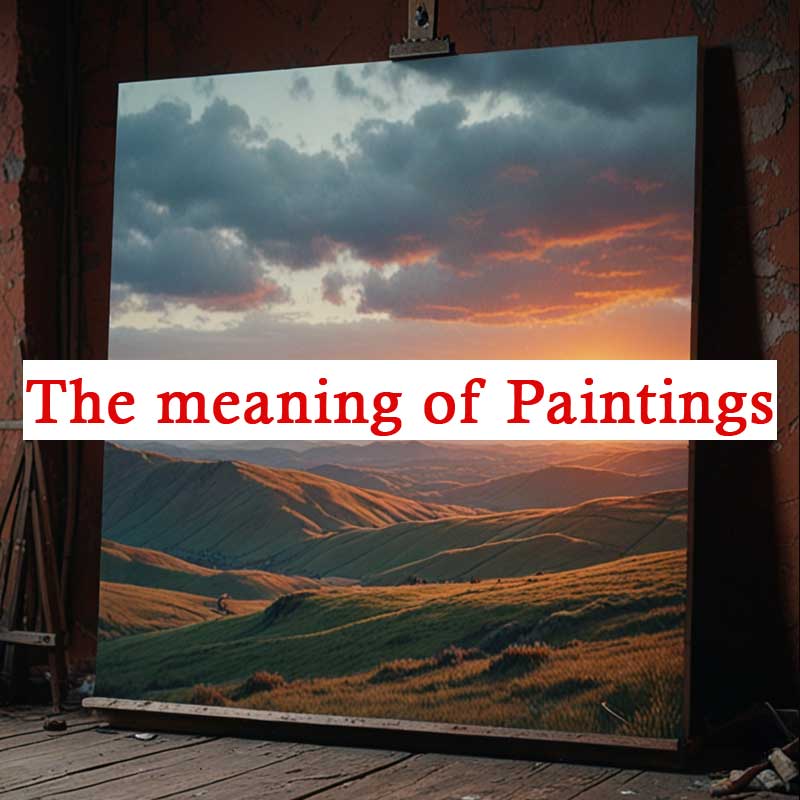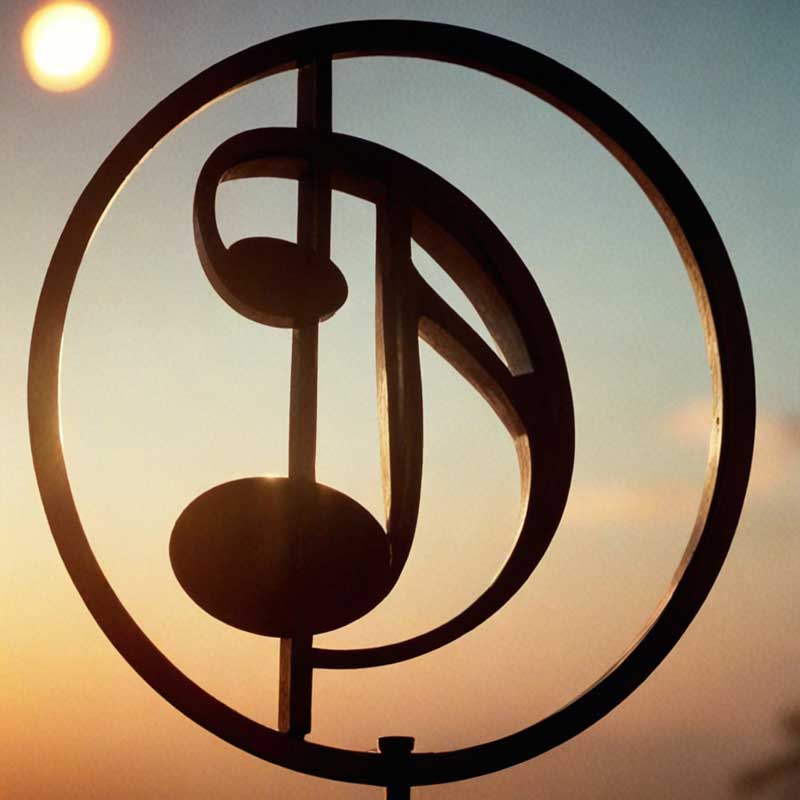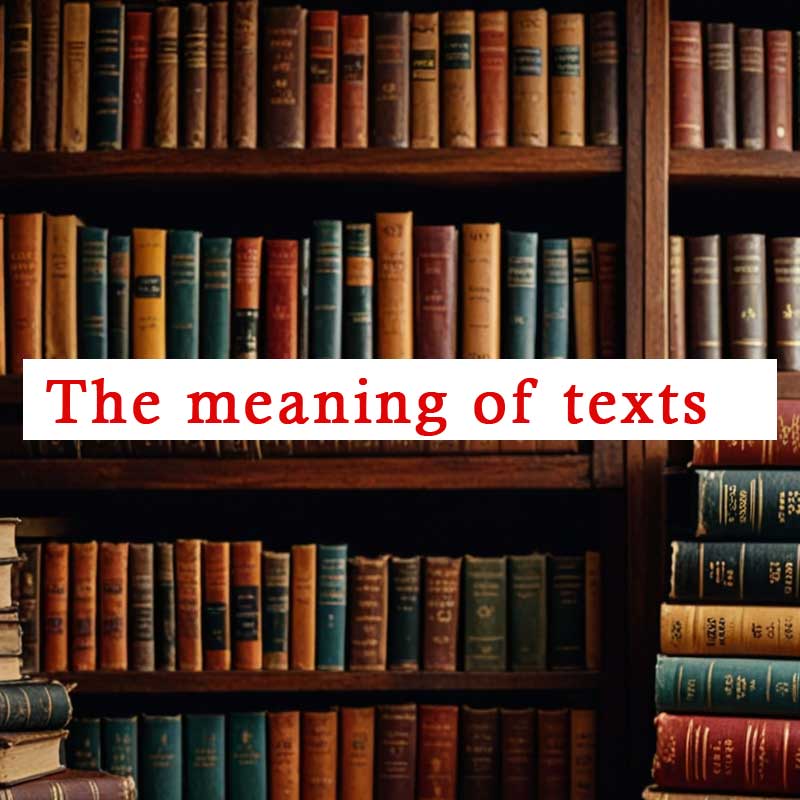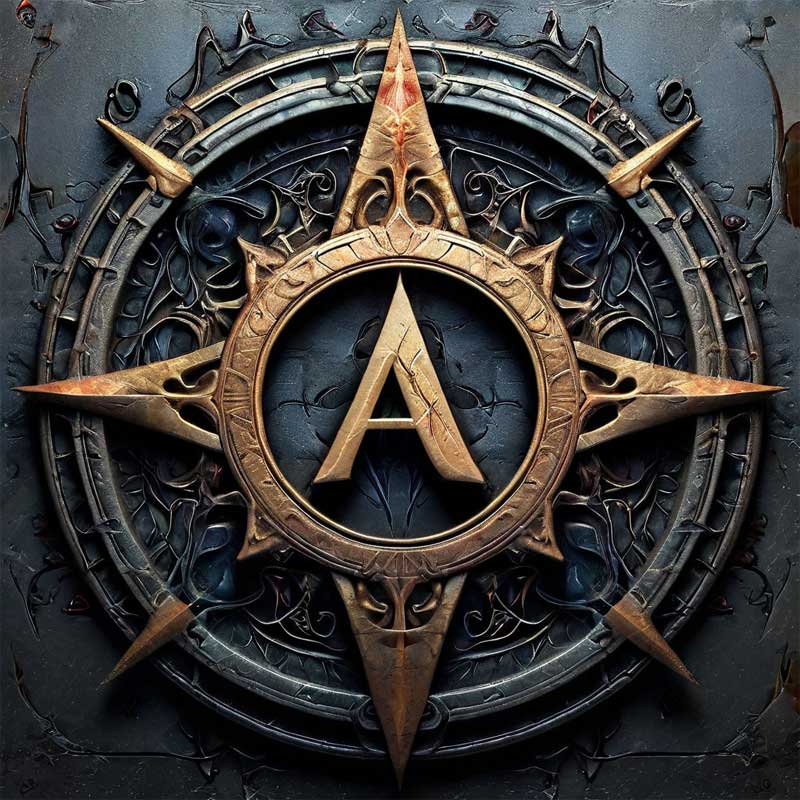Welcome to wikiMeaning! Where the meaning of movies, songs, words, symbols, and more is revealed.
Our platform hosts a vast array of articles that explore and explain the significance of:
Movies.
Dive into the themes, messages, and symbolism in your favorite films. Find thorough analyses and diverse perspectives to enrich your understanding of cinematic works.
Unpack the stories, emotions, and contexts behind song lyrics and melodies. Learn what inspired your favorite tracks and the messages they convey.
Paintings.
Explore the hidden symbolism and artistic intentions in famous and lesser-known artworks. Gain insights into the visual narratives and cultural significance of paintings.
Words.
Delve into the etymology, usage, and cultural impact of words. Get a deeper understanding of language and its evolution.
Music Videos.
Decode the visual storytelling and artistic choices in music videos. See how imagery and music combine to create powerful narratives.
Texts.
Analyze the meanings and themes behind written texts, from literature to everyday communications. Uncover the deeper messages in the words we read.
Events.
Get detailed insights into historical and contemporary events, understanding their causes, impacts, and significance.
Symbols.
Discover the meanings behind symbols from various cultures, religions, and historical periods. Learn how symbols communicate complex ideas and emotions.
Names.
Learn about the origins, meanings, and cultural significance of names from around the world.
Actions.
Learn about the cultural and psychological interpretations of various actions and behaviors.
Join our vibrant community of contributors and enthusiasts to explore and share the wealth of meanings that shape our world. Start your Wikimeaning journey today!
New articles:
Putin's Secret Peace Plan is complex and multifaceted, and its implementation will require enormous efforts and compromises from both sides.
In Mikhail Krug's song "Yaroslavskaya," the protagonist faces a conflict typical of his work the struggle between loyalty and temptation. On one hand, we see a married man who values family comfort ("Let's go home, I'll be there in an hour")
In Mikhail Krug's song "I've Already Experienced It All," the lyrical heroine reflects on the pain of a broken relationship. She ponders questions about how to love and be loved again, how to forgive past hurts, and how to cope with separation
In Mikhail Krug's song "I love you", the lyrical hero expresses his deep and tender feelings for his beloved. He dreams of meeting her, of the simple happiness of being near, seeing her, hearing her, feeling her warmth and care
In the song "I sat and fiddled with a stranger's dress.
The song "I crossed Siberia.
The song "I Was Smoking on Gagarin Street" by Mikhail Krug tells a story of a lyrical hero and his complicated life path full of mistakes, betrayals, and hardships.**With no prospects, no good, I enter Tver from the courtyard, as they say, exclusively through connections
Mikhail Krug's song "I Love You When You're Away" explores a complex array of emotions experienced by the lyrical hero, all stemming from separation from his beloved. Paradoxically, the song's title phrase doesn't express joy from the distance, but rather a deep longing and the realization of a loved one's value precisely during times of separation
The song "I am Weeping Bitterly (The Trial)" by Mikhail Krug tells the story of a man unjustly convicted and sentenced to death. The lyrics are filled with pain, despair, and longing for freedom and loved ones
The song "I know you" by Mikhail Krug depicts a scene of a cynical, one-night stand between the lyrical hero and a woman, presumably a high-class escort.**The first verse** sets the tone the hero is aware of his companion's profession ("I know you, who you are"), while she remains ignorant of his identity
In Mikhail Krug's song "I'm back! Hello, Mama!", the protagonist returns home after a long absence, possibly from prison. The lyrics convey the hero's mixed emotions and the contrast between his expectations and reality
This text, titled "Это имя" ("This Name") by Mikhail Krug, describes a deep, all-consuming pain of lost love. The lyrical hero is tormented by the inability to turn back time, to see his beloved again, to give her flowers
Mikhail Krug's song "It Was Yesterday" reveals the deep sadness and longing of the lyrical hero for his lost love. The text is saturated with an atmosphere of hopelessness and acceptance of the bitter truth about the breakup
In Mikhail Krug's song "Elektrichka" ("Electric Train"), we are presented with a story of a lyrical hero longing for inspiration and solace in the arms of his muse. The electric train serves as a symbol of time's fleeting nature and the transience of life
In his song "Euphemism about the Past," Mikhail Krug addresses the image of Mother Russia, expressing his pain and bitter irony about her past and present.**"What are you living with, Mother Russia, and what are you sad about? Is the devil in your ribs now expecting a child?"** - the song begins with these lines, and one can already feel the caustic grin
In Mikhail Krug's song "Chifirnut by Nishtyak", the lyrical hero finds himself in a difficult life situation, most likely in prison (as evidenced by the words "BUR", "barracks"). He experiences longing, loneliness, and coldness (both physical and emotional)
EnglishThe song "Chikolda" by Mikhail Krug uses irony to reflect the realities of the 1990s in Russia and the stereotypical perception of prostitution.The author begins with absurd images a worker sharpening a chikolda (a shiv, implying uselessness) and a milkmaid milking a bull
In Mikhail Krug's song "Honest Thief" we see the story of a man living a double life. On the one hand, he is a criminal, a robber, planning revenge on his enemies
Mikhail Krug's song "Tea with Baranki" tells the story of a chance encounter and a brief romance between the lyrical hero, who is a "thief in law," and a girl who is unaware of his criminal past.The meaning of the text lies in the clash of two worlds the world of crime, represented by the lyrical hero, and the world of ordinary people, to which the girl belongs
The song "Khaim" by Mikhail Krug tells the story of a strong male friendship born in the harsh conditions of prison. The lyrical hero recalls his meeting with Khaim, a tailor by profession, at a time when he himself was "starving in the zone
This song by Mikhail Krug, "Morning Scandal," depicts a domestic quarrel between the lyrical hero and his wife, Tatiana.From the very morning, the atmosphere is tense it's raining, the hero has a cough, and Tatiana has been in a bad mood since the previous evening due to a losing lottery ticket
In the song "Clever Girl" ("Умница"), Mikhail Krug sings about his love for his homeland and how no foreign temptations can replace his native Tver.The lyrical hero of the song travels the world, meeting beautiful women who offer him to stay Ninel in Paris and Madeleine in Berlin
The song "Rubbing against the Author's Bust" by Mikhail Krug describes the tragic fate of a woman mired in a vicious cycle of casual relationships and alcohol.The author paints a bleak picture women "rubbing" against Krug's bust are looking only for fleeting pleasures











